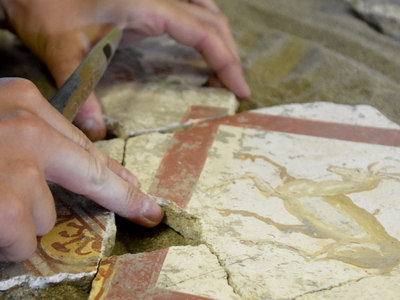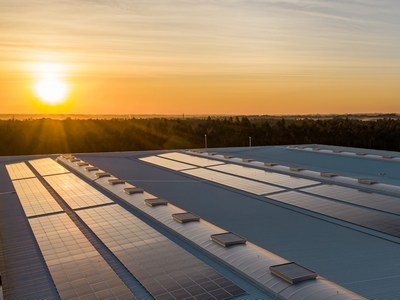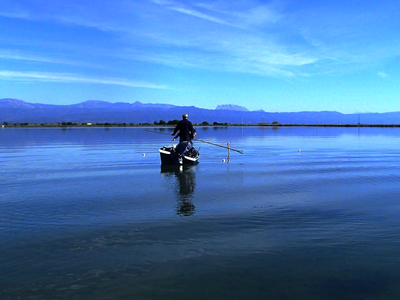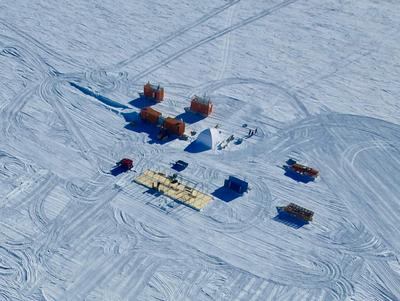Ca' Foscari researchers take part in a number of strategic projects of relevance.
This section presents all on-going projects related to Ca' Foscari's Global Challenges. To discover the past projects, please visit the Archive.
REBALANCE - Reframing the mutual influence among large companies and democracies
While globalization, financialization and monopolies increasingly weaken democracies, large companies are having an ever-greater influence on how democracy is enacted in Europe, leading to a "market-conforming capitalism". Firms are eluding regulation, lobbying for their own rather than citizens’ interest, abusing human rights and push the abused to withdraw from democratic processes, fuelling populism. Some economic actors are experimenting with alternative models and demonstrating more interest in sustainability and tentative routes toward an alternative "democracy-conforming capitalism". In this debate, the application of political-science lenses has black-boxed large companies, while the viewpoint of management scholars has usually considered firms’ economic gains rather than impact on society and democracy. This has left a gap in our understanding of the mutual influence among large companies and democracies. The REBALANCE project (Reframing disruptivE Business of multinAtional corporation and gLobal value chAins within democratic and iNClusive citizenship processes) will fill this gap by investigating how large companies (1) have contributed to past and present threats to democracy; (2) can promote future democracy-enhancing business models and alternative organizational forms.
Project website / EU Cordis database
Researcher: Francesco Zirpoli
Duration: 01/10/2022 - 30/09/2025
Funding: Horizon Europe - Culture, creativity and inclusive society
MODERATE: Marketable Open Data Solutions for Optimized Building-Related Energy Services
MODERATE will formalize a set of procedures and techniques that enable building owners, policymakers, facility managers, utility companies, etc. to openly share their data, gain insights, and make decisions while complying with regulations such as the General Data Protection Regulation (GDPR). Moreover, MODERATE will enable uniform access to heterogeneous data sources on buildings' performance, usually dispersed in several non-interoperable data silos. MODERATE will develop an open platform, embracing leading-edge technologies, such as artificial intelligence (AI), machine learning (ML), blockchain/distributed ledger technologies, the internet of things (IoT), and many more. This platform will enable its users to analyze real-time building data from various building systems and provide insight into the many dimensions of a building's performance. The use of synthetic data generation techniques, not yet widely applied in the construction industry, is one of the elements that allow open data sharing, enabling more reliable services and generating business opportunities.
Project website / EU Cordis database
Researcher: Wilmer Pasut
Duration: 01/06/2022 - 31/05/2026
Funding: Horizon Europe - Climate, Energy and Mobility
PollinAction - Actions for boosting pollination in rural and urban areas
The objective of the LIFE funded project PollinAction is to mitigate the pollination crisis by creating a green infrastructure (GI) network, made up of natural and semi-natural areas, in rural and urban landscapes in North-East Italy. This will involve habitat restoration and the implementation of nature-based solutions. The project is mainly aimed at converting arable crops and rural or urban marginal areas into key habitats for pollinators. To reach this objective, it will improve species-poor grasslands and landscape heterogeneity by creating connectivity among rural and urban areas as well as along road infrastructure and riverbanks. LIFE PollinAction will assess the ecosystem conditions and services and will implement payments for ecosystem services (PES) schemes. The definition of an urban planning of compensation measures at local scale will be also considered as well as the design of circular economy processes and close-to-market solutions to boost farmer competitiveness. The project will be replicated in a marginalised and abandoned area in the Aragon region of Spain. This will allow the effectiveness of GI to be evaluated in two areas with opposite dynamics (i.e. specialisation/intensification vs. marginalisation/abandonment).
Project website / EU LIFE Public database
Researcher: Gabriella Buffa
Duration: 01/09/2020 - 31/03/2025
Funding: LIFE
Optimised personalised drug therapies for renal pathologies in type II diabetes
Diseases, co-morbidities, and patients responses to certain therapies are the result of a complicated interplay of numerous factors. The relationships defining how this intricate network of inputs leads to various outputs is extremely difficult to derive using conventional means. Thanks to Big Data, high-level applied mathematics and computers, the EU-funded DC-Ren project (Drug combinations for rewriting trajectories of renal pathologies in type II diabetes) is developing a tool that will take all this and more into account, and enable optimised personalised drug therapies for significantly enhanced outcomes. The team is focusing on diabetic kidney disease, a common co-morbidity of type 2 diabetes often accompanied by cardiovascular disease. Currently, the drug cocktails targeting it produce highly varied responses. Thanks to its vast patient database, advanced experimental techniques and dynamical systems theory, DC-ren is developing a completely new and widely applicable computational framework for decision support.
Website
Researcher: Debora Slanzi
Duration: 01/01/2020 - 31/12/2024
Reconstructing the Past: Artificial Intelligence and Robotics meet Cultural Heritage (RePAIR)
The main goal of the RePAIR project is to develop innovative technology to virtually eliminate one of the most laborious and frustrating steps in archaeological research, namely the physical reconstruction of shattered artefacts. In fact, countless vases, amphorae, frescoes and other ancient artifacts, around the world, have not survived intact and have been extracted from excavation sites as large collections of fragments, many of which are damaged, worn out or entirely missing.
Project website / EU Cordis database
Researcher: Marcello Pelillo
Duration: 01/06/2021 - 31/12/2024
Funding: Horizon 2020 Excellent Science - Future and Emerging Technologies (FET)
SunShine - Safe by Design Strategies for High Performance Multi-component Nanomaterials
SUNSHINE is an industry-oriented project, where leading research and technology organisations will cooperate with SMEs and large industries to develop and implement simple, robust, and cost-effective Safe and Sustainable by Design (SSbD) strategies for materials and products incorporating advanced multi-component nanomaterials. To this end, the project will establish a user-friendly e-infrastructure to foster dialogue, collaboration, and information exchange between actors along entire product supply chains. The SSbD strategies will modify products and processes involving advanced multi-component nanomaterials in order to reduce their potential for release or hazard potency. The goal is to develop technologies that are safe and sustainable, but also retain the desired functionality for their intended uses. In addition to promoting safe and sustainable innovation, SUNSHINE will facilitate a two-way dialogue between innovators and regulators, which can help to raise awareness and address regulatory concerns in the early stages of innovation. Ideally, this can shorten the time of novel nanotechnology products to reach the market.
Project website / EU Cordis database
Researcher: Antonio Marcomini
Duration: 01/01/2021 - 31/12/2024
Funding: Horizon 2020 Industrial Leadership: Leadership in enabling and industrial technologies - Advanced materials
LIFE TRANSFER - Seagrass transplantation for transitional Ecosystem Recovery
The LIFE-TRANSFER project aims to trigger the process of recolonization of aquatic phanerogams in selected Mediterranea lagoons through the transplanting of small sods and rhizomes of Zostera marina, Zostera noltei, Ruppia cirrhosa and Cymodocea nodosa. In each lagoon, the species previously present will be transplanted, to promote the natural propagation capacity through seed production and dispersion. The intervention technique provides transplantation exclusively by hand with a reduced amount of material from donor sites, with advantages in terms of environmental impact, costs and of application on a larger scale.
Project website / EU LIFE Public database
Researcher: Adriano Sfriso
Duration: 01/12/2020 - 30/11/2025
Funding: LIFE
Beyond EPICA Oldest Ice Core
The project "BEYOND EPICA - Beyond EPICA Oldest Ice Core: 1,5 Myr of greenhouse gas – climate feedbacks" will recover the first ever ice core record reaching beyond 1 million years (1 Myr) ago, extending our knowledge on climate and greenhouse gas forcing to 1.5 Myr, past the change in climate dynamics known as the Mid-Pleistocene Transition, where glacial/interglacial cycles changed from a 40,000 to a 100,000 yr cyclicity. This is a longstanding aim of international ice core science, and is eagerly awaited by the entire palaeoclimate discipline and the wider climate community. The overarching scientific goal driving BE-OIC is to obtain the first stratigraphically undisturbed, high-resolution ice-core record of climate and environmental changes over the last 1.5 Myr, and use it to elucidate the role of slow parts of the climate system (carbon cycle, ice sheets) in climate change. By obtaining for the first time ever a continuous ice core extending up to the last 1.5 Myr, we will cover the Mid Pleistocene Transition (MPT, from approximately 1.2 Myr to 0.9 Myr before present).
Project website / EU Cordis database
Researcher: Barbara Stenni
Duration: 01/06/2019 - 31/05/2025
Funding: Horizon 2020
PARIS REINFORCE - Delivering on the Paris Agreement: A demand-driven, integrated assessment modelling approach
PARIS REINFORCE aims to underpin climate policymaking with authoritative scientific processes and results, and enhance the science-policy interface, in light of the Paris Agreement and associated challenges. In particular, the aim is to develop a novel, demand-driven, IAM-oriented assessment framework for effectively supporting the design and assessment of climate policies in the EU as well as in other major emitters and selected less emitting/developed countries, in respect to the Paris Agreement objectives. Building on an exhaustive facilitative dialogue and a strong ensemble of complementary -in terms of mathematical structure, geographical, sectoral and focus coverage- integrated assessment, energy system and sectoral models, we will create an open-access and transparent data exchange platform, I2AM PARIS, in order to support the effective implementation of Nationally Determined Contributions, the preparation of future action pledges, the development of 2050 decarbonisation strategies, and the reinforcement of the 2023 Global Stocktake. The project also seeks to enhance the legitimacy of the scientific processes in support of climate policymaking, by introducing an innovative stakeholder inclusion framework and improving the transparency of the employed models, methods and tools. PARIS REINFORCE will introduce innovative integrative processes, in which IAMs are further coupled with well-established methodological frameworks, in order to improve the robustness of modelling outcomes against different types of uncertainties.
Project website / EU Cordis database
Researcher: Carlo Carraro
Duration: 01/06/2019 - 31/05/2025
Funding: Horizon 2020 Societal Challenges - Climate action, Environment, Resource Efficiency and Raw Materials









